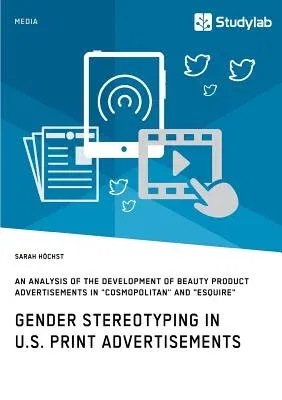In contemporary society advertising is everywhere. Advertisement is
always with us, no matter where we are. Although we are aware of the
constant bombarding by advertisement everywhere we go, we hardly
recognize the influence that it has on us. Thereby, advertising has a
great influence on us as individuals and on society as a whole. Through
the media, we make sense of our cultural identities, gender and
sexuality. The central goal of this book is to examine the development
of presentations of gender stereotypes in print advertisements over a
time period of 40 years via content analysis of a sample of magazine
advertisements. The key questions are: How do U.S. print advertisements
construct gender stereotypes? How did these stereotypes develop and do
they have an influence on the consumer and the U.S. culture? Content
analysis has been proven in decades of research on gender stereotyping
as it relates to mass media and because this is an appropriate method to
not only focus on images, but also on verbal messages. Magazines present
an especially enduring, popular medium, thus this study focuses on
gender stereotypes in print advertisements of magazines. More
specifically, it focuses on the magazines Cosmopolitan and Esquire due
to the varying target audiences, and because they might be a potential
indicator of U.S. magazine advertising in general. To further limit the
object of investigation, this study concentrates on beauty product
advertisements. From the text: - Gender studies; - Cosmopolitan; -
Esquire; - Identity; - U.S. Magazines


